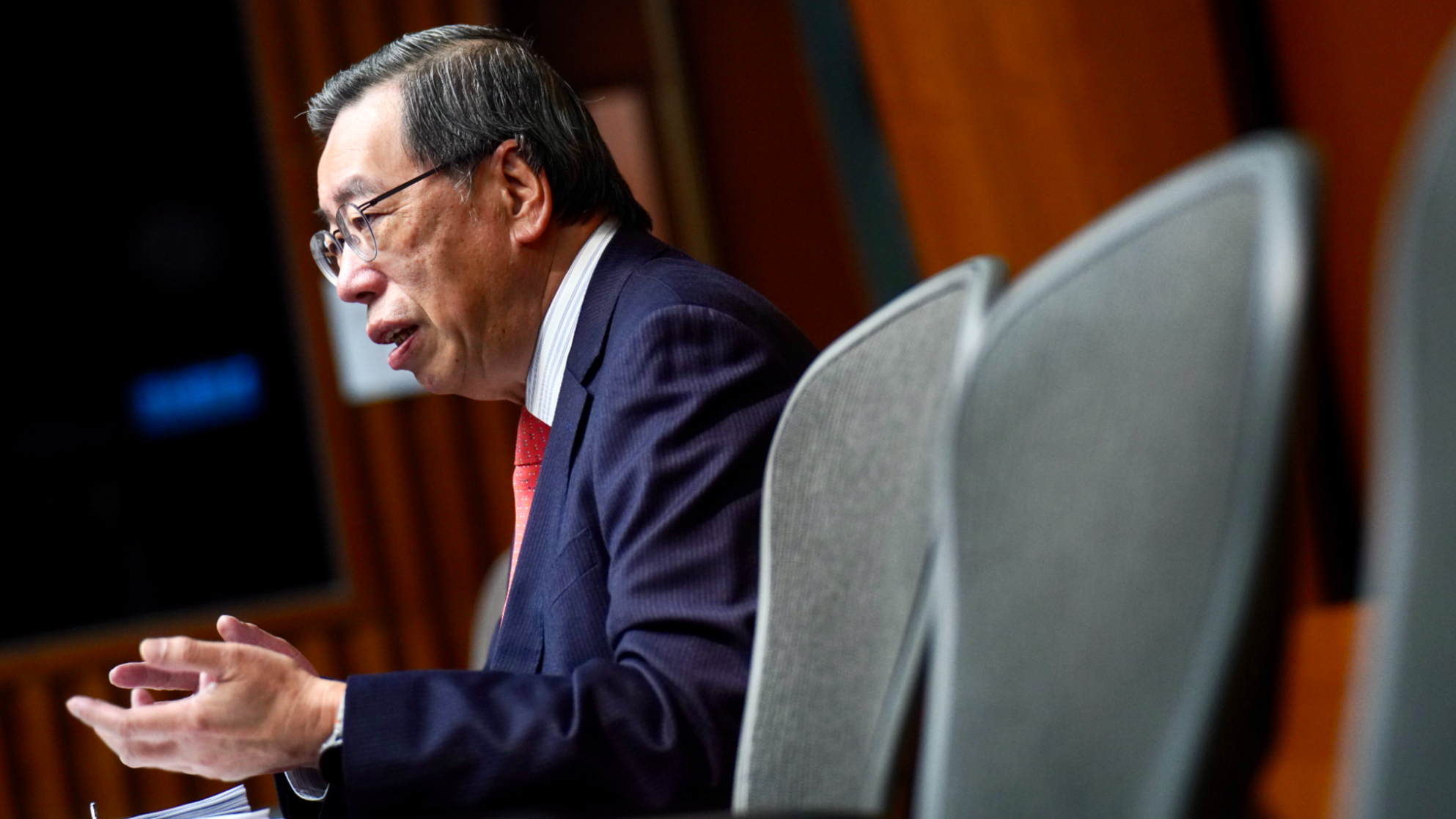
Hong Kong’s legislature passed 34 bills during the past legislative year, a period characterized by “bold and pragmatic” efforts to enhance social stability, consolidate competitiveness, and improve the livelihoods of residents, President of the Legislative Council Andrew Leung Kwan-yuen said at a news conference on Thursday.
This achievement brings the total number of bills approved by the seventh Legislative Council to 83, a 48 percent increase compared to its predecessor during the same time frame.
Leung added that an additional 11 bills submitted by the Hong Kong Special Administrative Region government in recent weeks are still under consideration and assured the public that the council will work diligently to address the backlog of unfinished legislation in the remaining months of its term.
As the current LegCo’s four-year term will end in 12 months, Leung emphasized the council’s commitment to collaborating with the government to advance reforms and promote the development of Hong Kong.
ALSO READ: LegCo exercises effective gatekeeper role over public finances
Among the notable legislative accomplishments was the local legislation regarding Article 23 of the Basic Law — the passage of Safeguarding National Security Ordinance — which came into effect on March 23.
Article 23 mandates that the HKSAR legislates against acts such as treason, secession, sedition, subversion, and the theft of state secrets, a task that had been delayed for 27 years since the city’s return to the motherland.
“With the determination and joint efforts of the executive and legislative branches, the seventh LegCo succeeded in fulfilling the constitutional duty for our nation and the HKSAR,” he stated.
Several other bills that were passed align with key directives from a crucial meeting of the Communist Party of China Central Committee in July, which called for improvements to Hong Kong’s position as a global hub for finance, shipping, and trade.
ALSO READ: LegCo chief vows to help achieve city’s reform goals
Bills aimed at improving livelihoods involve establishing a mandatory child abuse reporting mechanism, improving fire safety standards in older buildings, and introducing new pathways for admitting qualified nonlocally trained dentists and nurses to address the public’s acute needs.
Leung described the enhanced efficiency in lawmaking and the renewed focus on public needs as part of a more constructive partnership between the legislature and the government, framed by the principle of “patriots administering Hong Kong”.
Praising the dedication of council members, Leung said they conducted 36 legislative meetings totaling 331 hours during the year. Members raised 156 oral questions, posed 953 supplementary questions concerning government operations, and submitted over 500 written inquiries, all closely linked to issues affecting the public’s daily lives.
In response to criticism that some members’ motions were vague and lacked engagement, Leung defended the value of the diverse viewpoints expressed in the council.
READ MORE: Leung: LegCo to promote HK development in next 25 years
“Watching a parliamentary meeting is completely different from watching a drama series,” he said, emphasizing that even seemingly dull discussions are crucial to addressing fundamental issues.
Addressing concerns about lawmakers’ attendance, Leung said that council members cannot remain solely in the chamber; they must also engage with residents through outreach and face-to-face interactions.

“I believe that most members are working diligently and with great effort,” he said.
The past legislative year, according to Leung, reflects a growing synergy between the executive authorities and the Legislative Council, both of which aim to work collaboratively toward shared goals.
READ MORE: Hong Kong lawmakers vow to better serve society’s practical needs
He said that the council held four antechamber exchange sessions, allowing members to interact directly with heads of various policy bureaus on topics such as Hong Kong’s role in the Belt and Road Initiative and efforts to develop new quality productive forces — or advancements aimed at enhancing the productivity and efficiency of the economy.
The council also held three question-and-answer sessions with Chief Executive John Lee Ka-chiu, covering topics such as his signature campaign to revive consumption through mega events and promote Chinese traditional culture.
“The current Legislative Council is about to end, and the responsibilities of the members are even greater. We must seize the time and opportunities with bolder determination and more vigorous actions to work hand in hand with the administrative authorities to propel Hong Kong forward,” Leung said.


